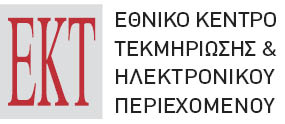This thesis investigates present-day attitudes of Arvanitika and non-Arvanitika speakers towards the Arvanitika language in Greece. Speakers of Arvanitika in Greece have experienced multiple discriminative, oppressive and assimilation policies on the part of the Greek State in the past, which had led their language to its gradual and long-term decline. For this reason, during the 1980s, experts in linguistics had predicted that Arvanitika would most likely die out within the next two to three generations. However, the Albanian economic migration to Greece in the 1990s seems to have interrupted Arvanitika’s declining trajectory and to have contributed to its short-term ‘revival’ due to its mutual intelligibility with the Albanian language; it was this mutual intelligibility that, during the first years of the Albanian migration, made Arvanitika the basic means of communication among the Arvanitika speakers and the Albanian migrants. This socio-historical dimension that had not been investigated to date was one of the main gaps that this project set out to examine with respect to participants’ attitudes. Data collection took place in person in three Arvanitika-speaking regions in the north and the south of Greece, and online in both Arvanitika and non-Arvanitika-speaking regions throughout the country. The employment of both quantitative and qualitative methods allowed for safe conclusions to be drawn as regards participants’ attitudes towards Arvanitika. The former method revealed positive attitudes on the part of most Arvanitika and non-Arvanitika speakers towards Arvanitika. The latter method revealed conflicting, fluid and contradictory attitudes on the part of the elder in age Arvanitika speakers that were intertwined with participants’ conflicting expressions of their ethno-linguistic identity and their experiencing of profound stigmatisation upon being equated with the Albanian migrants, a population that has been harshly discriminated against in Greece and whose ethnic label bears negative connotations in the Greek context. This equation and its consequent discrimination and stigmatisation against Arvanitika speakers led them to, unconsciously, abandon their heritage language to the point that Arvanitika is now characterised as a(n) (severely) endangered language.
Η παρούσα διατριβή πραγματεύεται την διερεύνηση των γλωσσικών στάσεων των αρβανιτόφωνων και μη αρβανιτόφωνων κοινοτήτων απέναντι στα αρβανίτικα. Οι ομιλητές/-τριες των αρβανίτικων έχουν υποστεί πολιτικές αφομοίωσης, όπως και άλλες γλωσσικές μειονότητες στην Ελλάδα, οι οποίες, σε συνδυασμό με μια σειρά παραγόντων, είχαν ως αποτέλεσμα τη σταδιακή υποχώρηση της γλώσσας. Για το λόγο αυτό, κατά τη δεκαετία του 1980, ερευνητές είχαν προβλέψει ότι τα αρβανίτικα πιθανότατα θα εξαφανίζονταν μέσα στις επόμενες δύο με τρεις γενιές. Ωστόσο, η αλβανική οικονομική μετανάστευση στην Ελλάδα τη δεκαετία του 1990 φαίνεται να διέκοψε την φθίνουσα πορεία της αρβανίτικης γλώσσας και να συνέβαλε στη βραχυπρόθεσμη «αναβίωσή» της λόγω της αμοιβαίας κατανοησιμότητας της με τα αλβανικά. Αυτός ήταν και ο λόγος που τα αρβανίτικα υπήρξαν ο βασικός κώδικας επικοινωνίας μεταξύ των Αρβανιτών/-ισσών και των Αλβανών μεταναστών/-τριών στην Ελλάδα. Η συλλογή δεδομένων έλαβε χώρα δια ζώσης σε διάφορες αρβανιτόφωνες περιοχές της βόρειας και της νότιας Ελλάδα καθώς και διαδικτυακά. Η χρήση τόσο των ποσοτικών όσο και των ποιοτικών μεθόδων επέτρεψε την εξαγωγή ασφαλών συμπερασμάτων σχετικά με τη στάση των συμμετεχόντων/-ουσών απέναντι στα αρβανίτικα. Η ποσοτική μέθοδος αποκάλυψε θετικές στάσεις από την πλευρά των περισσότερων αρβανιτόφωνων και μη αρβανιτόφωνων απέναντι στα αρβανίτικα, ενώ η ποιοτική μέθοδος αποκάλυψε αντικρουόμενες και αντιφατικές στάσεις από την πλευρά των ηλικιωμένων ομιλητών της αρβανίτικης. Οι στάσεις αυτές φαίνεται να έχουν διαμορφωθεί και επηρεαστεί από την ταύτιση των ομιλητών/-τριών της αρβανίτικης με τους Αλβανούς μετανάστες, μία κοινωνική ομάδα που έχει υποστεί πολλαπλές διακρίσεις ως αποτέλεσμα των αρνητικών συνυποδηλώσεων του όρου 'Αλβανός' στην Ελλάδα. Αυτή η διάκριση και ο στιγματισμός που υπέστησαν οι ομιλητές/-τριες των αρβανίτικων φαίνεται να οδήγησε στην εγκατάλειψη της μητρικής τους γλώσσας, με τα αρβανίτικα σήμερα να χαρακτηρίζονται πλέον ως μία από τις πιο σοβαρά απειλούμενες γλώσσες στην Ελλάδα.
 National Documentation Centre (EKT)
National Documentation Centre (EKT)



